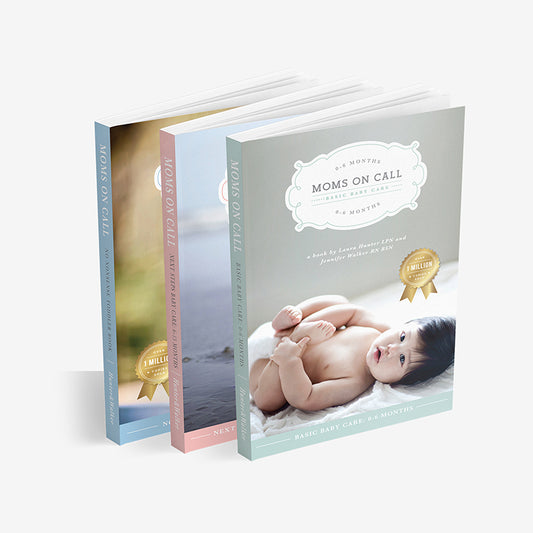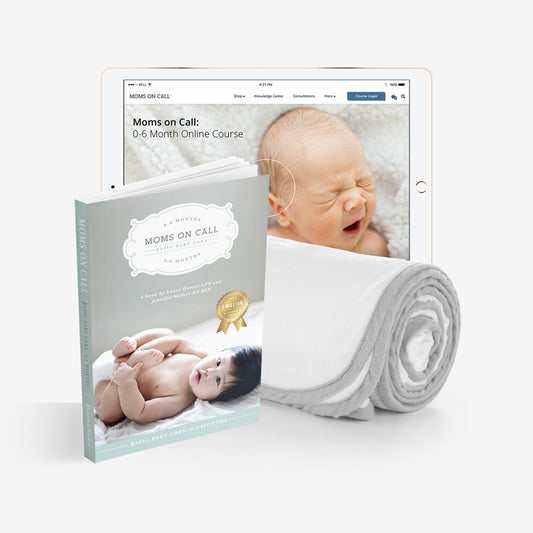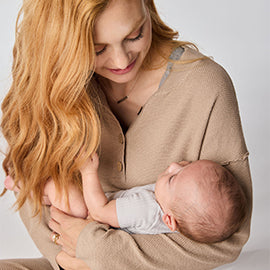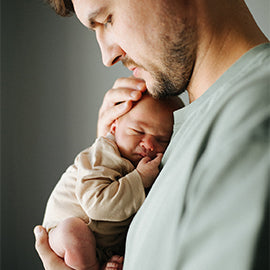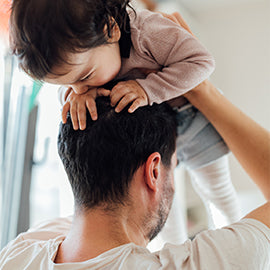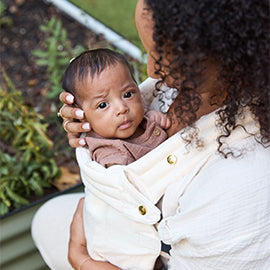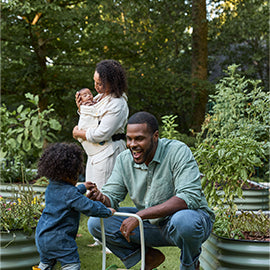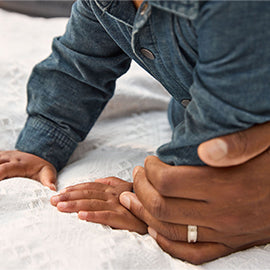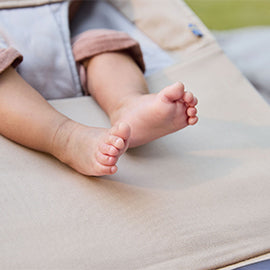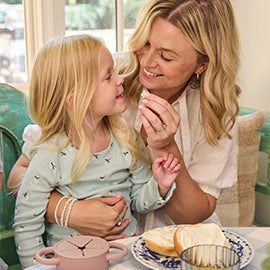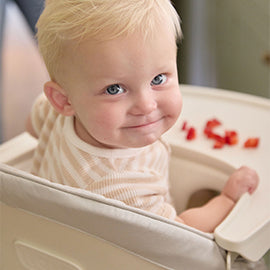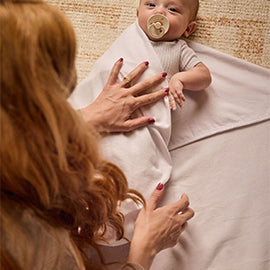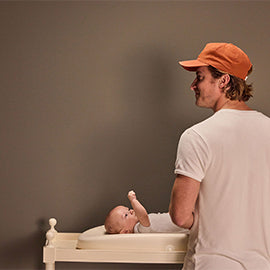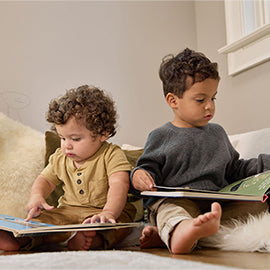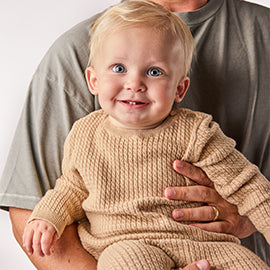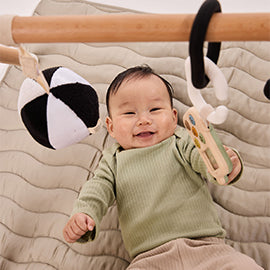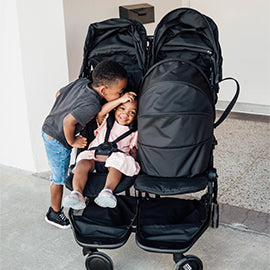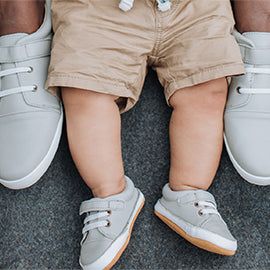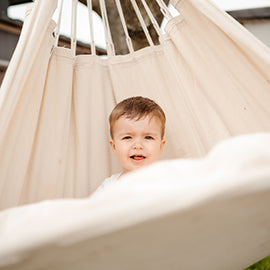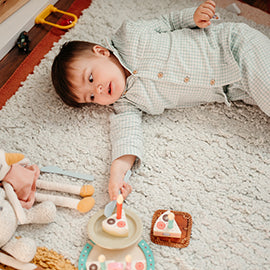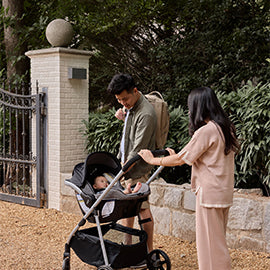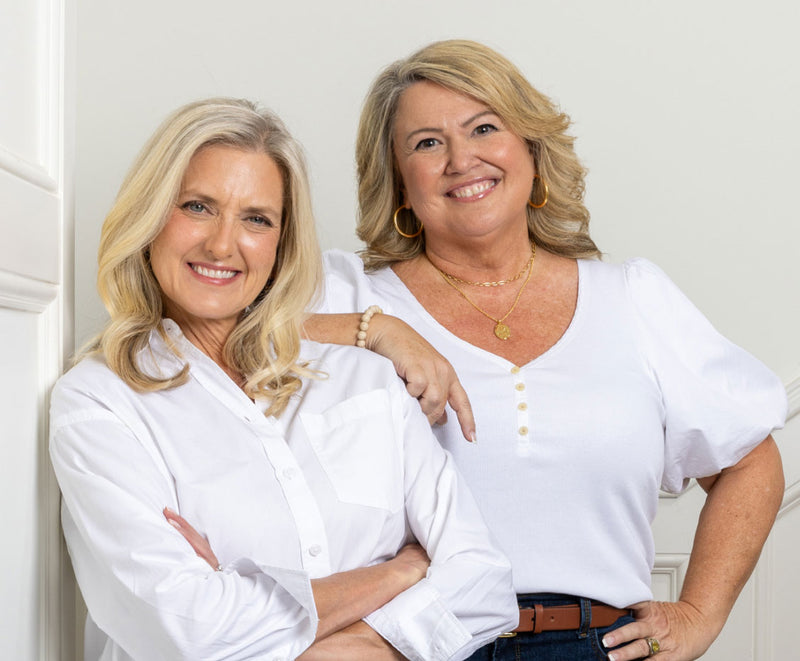Congratulations, your baby has their first tooth coming in! So, now what? How do you start your baby's dental care? The American Academy of Pediatric Dentistry (AAPD) recommends taking your child to the dentist at age 1 for their first dental visit. It may sound early, but it is so important to establish a dental home for your child. Think about preventing cavities now versus fixing cavities later.
Tips for a good first dental visit
- Prepare your child for what to expect. You can use books, props, videos, and even role play. The fewer surprises the better. And remember to be positive about their upcoming visit; the dentist doesn’t have to be scary, we have fun!
- If possible, bring your child to a Board Certified Pediatric Dentist to ensure a great, kid-friendly environment. You bring your child to a pediatrician because they specialize in children’s healthcare, right? Their teeth should be viewed the same way.
- Schedule your child’s dental appointment in the morning when they are fresh and avoid nap time.
- Let the office know if your child experiences high anxiety or if are they are considered special needs. We can usually put your child in a quiet room and away from other distractions/triggers.
- Be honest with the dentist about lifestyle habits and share any anxiety or fears. Don’t feel embarrassed! This is your time to get advice and ask their opinion about how to help your child.
- Don’t’ worry if they cry – this is a normal response to something new and unfamiliar. The dentist’s office is a safe space for you both.
Breastfeeding at night when your baby has teeth
A common question we get from parents is, “does breastmilk cause cavities”? The short answer is no. However, once your child has started transitioning to eating solids, the combination of these foods with breastmilk and/or formula can cause cavities if the proper oral hygiene measures are not performed. Here are a few easy tips for feeding at night that can save their teeth!
- Practice the 4 B’s: Bath, Bottle, Brush and Bed. Establishing this routine can set your baby up for success as they get older and transition out of nighttime feeding.
- If your baby is falling asleep after feeding, wipe their teeth with a damp washcloth (especially their top teeth). Hopefully this won’t wake them, but is necessary to clean the excess milk off their teeth. Make sure to brush well the next morning!
Fluoride
The fear a lot of parents have with fluoride toothpaste is that their baby can’t spit yet, so they don’t use it. This is why it is important to only use the suggested amount of fluoride toothpaste and no more.
Tips for fluoride
- If you’re nervous about using fluoride, start small. Use a fluoride-free paste in the morning and introduce fluoride only at night until you feel comfortable.
- Amount of toothpaste: Under age 3 use a grain of rice size and for ages 3+ use a green pea size.
Overall Pediatric Dental Care Tips
- Start good dental hygiene even before they get teeth! During bath time, wipe their gums and tongue with a damp washcloth. This will not only get them used to you being in their mouth, but it will also remove excess milk and decrease their chance for fungal infections, such as thrush.
- Avoid teething gels or tablets. Try baby-safe teeters like the Banana Brush or the Teething Tube. These are great cooled down in the fridge and can be washed in the dishwasher. If your baby is really irritable from teething, use the recommended amount of Children’s Tylenol.
- Once a child’s teeth touch each other (normally between ages 2 to 3), start flossing. Small floss picks work great for tight spaces!
Remember, your child’s first dental visit should be a fun and educational event for both the parents and the child! Being proactive with your kids can set them up for a lifetime of healthy oral habits.
Moms on Call was thrilled to partner with Dr. Allie Simmons, pediatric dentist at Pensacola Kids Dentistry, on this post! Dr. Allie received her degree in Biology from North Carolina State University then continued her studies at the University of North Carolina Chapel Hill where she received her dental degree. Dr. Allie completed her pediatric dental training at the University of Alabama Birmingham. UAB residency provided specialty training with pediatrics and specialized in providing care to patients with special needs. Upon graduation in 2014, she became a Board Certified Pediatric Dentist in 2016. She has a passion for providing dental care for children and is currently heading up the American Dental Association’s National “Give Kids a Smile Day” in Pensacola.

